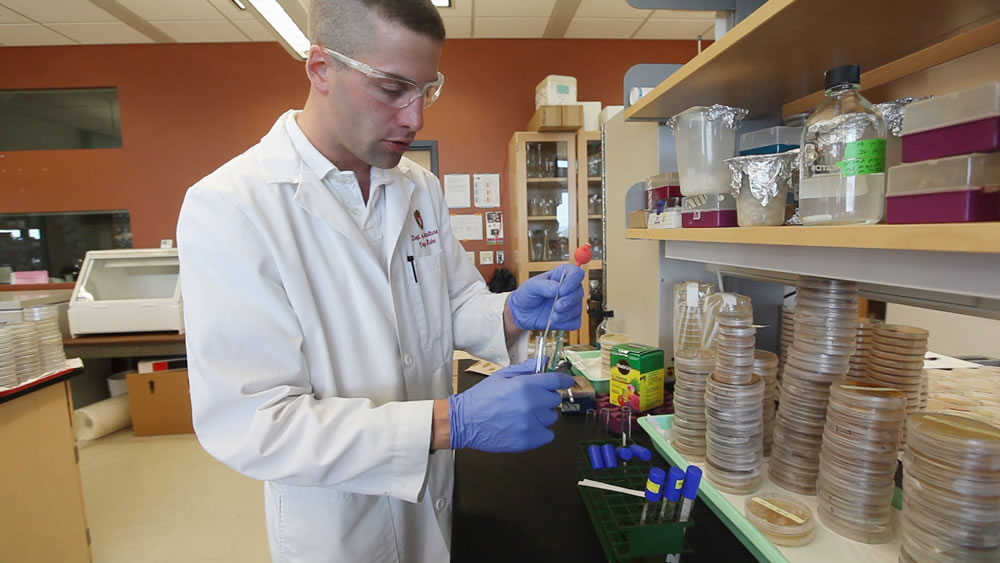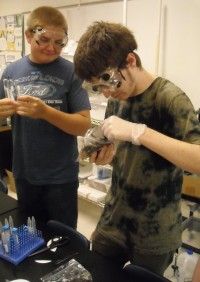As students in Craig Kohn’s class at Waterford Union High School can tell you, you don’t need a grant or Ph.D. to do scientific research. A question and some curiosity are all that’s needed—along with a sturdy pair of gloves.
Kohn BS’08, who earned degrees in biology and agricultural education at UW-Madison’s College of Agricultural and Life Sciences (CALS), teaches a class called Biotechnology and Biofuels in which students hunt for bacteria that naturally secrete enzymes called cellulases. Cellulases are named for their ability to break down cellulose, the sugar polymer in plant cell walls that gives stems and leaves their structure.
“Cellulases are important for bioenergy because they are necessary to turn cellulose into a fermentable product that can be made into ethanol and other biofuels,” says Kohn.
To find those cellulase-producing bacteria, Kohn sends students out to collect samples from the compost heaps and animal pens behind their school in a quest known as “bioprospecting.”
Back in the classroom, students drop the samples into test tubes filled with media solution and a strip of filter paper. If cellulases are present, the cellulose-based paper will disintegrate as the enzymes do their work.
That process of discovery excites students. “You see this light in their eyes when they realize that they are participating in science directly, and that their work could lead to actual breakthroughs and results,” Kohn says.
Kohn developed the activity as a participant in “Research Experience for Teachers,” a program at the UW’s Great Lakes Bioenergy Research Center (GLBRC). For his project he shadowed Cameron Currie, a CALS professor of bacteriology and a GLBRC researcher who uses genomic and ecological approaches to study biomass-degrading microbes.
“Teachers are not only learning about current science—they are embedded in the lab,” says John Greenler, GLBRC’s director of education and outreach. “When teachers have that primary experience, they are in a better position to engage their students because they ‘get it.’”
Connor Williams, a high school senior who helped develop the bioprospecting lab with Kohn through his participation in the National FFA Organization (formerly Future Farmers of America), says his favorite element is the hands-on, independent work.
“I learned that answers to biofuel challenges literally can be found right in our backyards,” Williams says. “You just need to know where to look.”

Craig Kohn, a teacher at Waterford Union High School, runs through his new bioprospecting educational
activity in a lab at the Microbial Science Building in Madison, Wis. (Photo: Matthew Wisniewski, Wisconsin Energy Institute)
By Celia Luterbacher, Wisconsin Energy Institute

